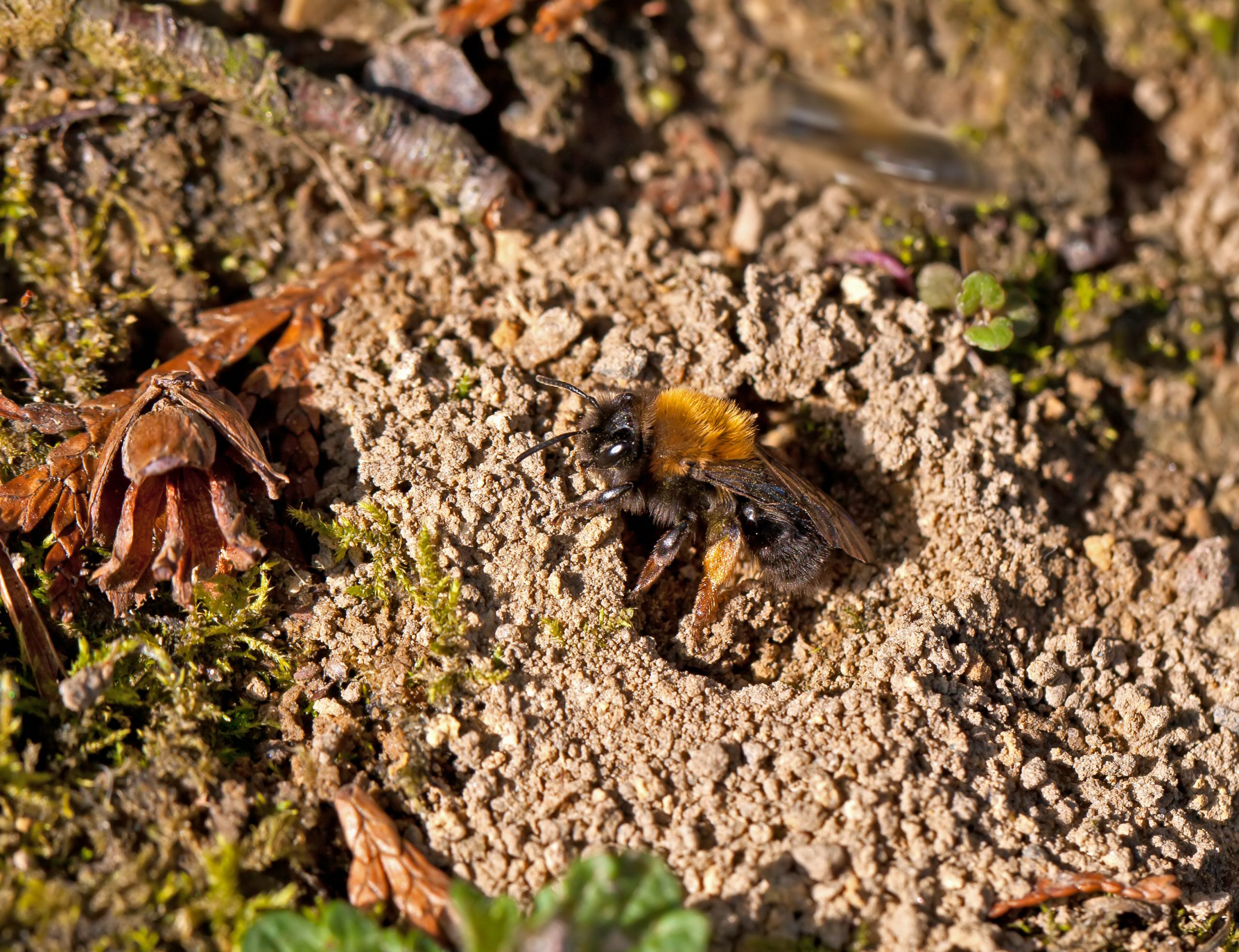Found a Large Anthill? Could be a Ground Bee’s Nest!
February 28, 2016
Have you ever found large mounds of soil that looked like anthills but had almost inch long openings? While it might be the home of a freaky super-ant (in which case you should run because ants are insect geniuses), it’s probably just a ground bee nest, especially if it’s early spring--ground bees’ most active time. I’m sure the prospect of getting stung while out walking isn’t the greatest thing ever, but ground bees are nothing to worry about. Either way, it is best to know about the different kinds out there and be able to identify them.
Unlike honeybees, who nest in hives with single queens, ground bees are solitary, with females excavating their nests in dry soil and mounding loose soil around the entrance--once completed, she brings provisions of pollen and nectar for her offspring. Males may also fly over burrows looking for mates, especially if there are multiple nests across a good dry patch of ground. If you’re worried about being stung, then know that female ground bees rarely sting and males have no stingers. They are not aggressive by nature, only stinging in self-defense or if they feel their nest is threatened. At the very least, try not to step on the lady's nest.
While ground bees--digger, mining, and sweat bees--are typically docile, you should never assume they are the ones nesting in those supersized anthills in your backyard. Bumblebees, for example, nest in underground burrows, though usually only in abandoned rodent burrows rather than building their own. These bees live social colonies, typically multiple males and females in one nest, and they will act aggressively to defend their nests--always remember to check the entrance for a single bee or multiple bees leaving. Also watch for yellowjackets, as solitary ones nest in the ground--hence why telling the difference is so important!
If you have a ground nest in your yard and decide to remove it, there are safe ways to do so. Ground bees nest in dry soil and like to avoid damp areas; therefore, the safest method for you to control them is to water potential nesting sites (bare, dry patches of ground) with at least one inch of water per week. This usually encourages burrowing females to relocate to drier ground. Also, a thick layer of mulch on bare garden beds works, and even more importantly pesticides are NOT recommended.
Ground bees are important pollinators for the environment, which is something to remember before evicting ground bees from your yard. The fear of being stung is unwarranted, since most of the time people go about their days without bumping into ground bees, even when the bees are nesting right there in the yard. Unless you have family members with bee allergies, it’s usually okay to let the ground bees go about their days too.


.jpg)




